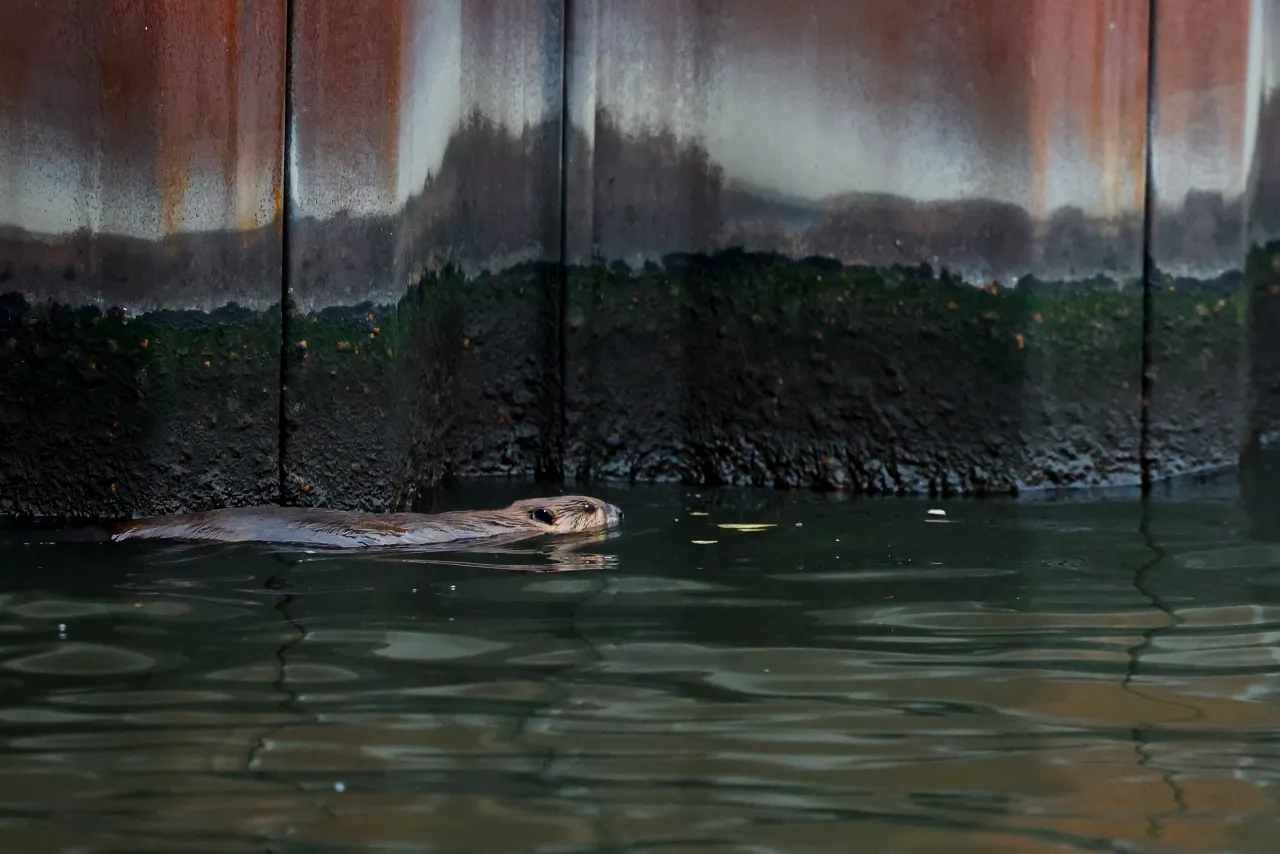I was cheered to see this article but a little worried about Doug being all alone. Has BC not heard about relocating family groups together?
At the heart of Skeetchestn territory is the Deadman Watershed, a living landscape of roughly 900 sq. km of forest and grassland northwest of Kamloops (Tk’emlups).
“The Deadman Watershed has been absolutely devastated,” says Shaun Freeman, senior wildlife and habitat biologist with Skeetchestn Natural Resource corp. “What we ended up with is a lot of hydrological issues.”
In the early spring, the snowpack melts all at once, with little water retained in the upper watershed due to vegetation loss, he explains. This has knock-on effects for the entire ecosystem
Tsecmenúl̓ecwem-kt (We Repair the Land ) is a project led by Skeetchestn Indian Band to remedy this situation.
They have many partners including Thompson Rivers University, the province and the Secwépemc Fisheries Commission. But the arguably most hardworking collaborator is one you may not expect — an ancient ally in ecological stewardship known in Secwepemctsín as sqlew’uwi and in English as the North American Beaver.
Well now I like how it starts. I got all comfortable this morning thinking I was going to read a delightful yearn about how a bunch of beavers changed a watershed together. Turns out Doug is alone.
To help the land, Skeetchestn’s Tsecmenúl̓ecwem-kt project has successfully populated the upper watershed with one beaver, known as Doug, with the goal to re-introduce more over coming years.
Beavers like Doug have a natural instinct to build dams across flowing water, creating ponds to evade predators. These ponds influence local hydrology, enhancing the habitat for countless other species, including plants, waterfowl, amphibians, invertebrates and of course salmon.
“Having ponds and wetlands keeps moisture in the soil and keeps that deciduous component healthy,” which Freeman says is important because those tree species don’t burn to the extent of evergreens. This creates natural fire breaks which can stall or potentially stop a wildfire from moving across the valley.
What’s even more important is slowing down the flow rate to maintain downstream flow into the heat of summer, when low flows block fish passage and can even be fatal.
Okay. So far so good. But I’m starting to get that feeling you get when someone you don’t very much trust says a little nice thing. Like you want them to stop talking before they ruin it.
“We are trying to make sure that the streams are not just a pile of rocks when it comes to August and September because everything, including us, needs water,” Freeman says. “Healthy ecosystems require water which is why we are trying to have the beavers help us do that recovery.”
“In terms of relocating beavers, it’s a little bit more complex than just grabbing them, putting them in the truck and dropping them off,” he says. They must be set up for success.
Since the 2021 Sparks Lake wildfire, there has been good regrowth of deciduous species, including aspen and willow which are important to beavers as food and building material. Three sites with good conditions were selected for possible reintroduction.
But the timing of the beaver capture and release is critical.
“We don’t want to be in a position where we’re capturing beavers that have kits in the lodge,” he says. Which means capturing needs to happen in the late winter or early spring.
They also need time to prepare their infrastructure — the lodge, feed pile and any dams they need to control the water level — in their new habitat. If you put them in too late, the chance of successful colonization is reduced.
Yes that’s all true. So why is Doug alone?
So, the first step was to prepare the holding facility where the beavers will stay between capture and release: the beaver hotel.
In creating a good habitat for Doug the beaver, the Interior Wildlife Rehabilitation Society was very helpful, and the team visited the Summerland beaver hotel to learn how it works and design their own.
The first guest of the Skeetchestn beaver hotel, a female the team named Willow, was not quite what they expected.
“Unfortunately, Willow decided to climb the seven foot chain link fence, as evidenced by the muddy footprints she left behind,” says Freeman, something they didn’t know a beaver could do.
WHAT? The first beaver you stuck in your holding cell was soo miserable to be ripped away from her family that she climbed the 7 foot chain link fence and jumped from that height to crawl away?
This should give you a clue about what a beaver feels about being alone and in your jail.
In contrast the second beaver they caught, a male they named Doug, was more than satisfied with his accommodations.
“He knew the gravy train was coming to him.”
There were a couple of times he was so deeply asleep the team thought, “Oh geez, Doug’s dead!” And they would have to wiggle his cage and tip him out.
Yeah Doug sounds like a real catch. A mover and a shaker. Some beavers are just lazy. Shocking but true. Remember our 2 older yearlings who never did anything? I used to call them the useless bookends because they looked exactly alike and never helped.
.Skeetchestn is not the only community interested in the positive effect beavers and their dams have on ecosystems. Elsewhere in the province the 10,000 Watersheds Project is building Beaver Dam Analogs, an alternative to natural beaver dams which seek to mimic their effect on hydrology.
While these are an exciting technology, Freeman says they have drawbacks. Humans have to build them and, unless the analog is adopted by beavers, humans are responsible for maintaining them too.
“They are also liable if something goes wrong,” says Freeman. “But you can’t sue a beaver.”
Ha. You can sue the people that put him there.
The beaver colonies in the lower watershed that had been the targets for relocation suffered deaths over the winter. The team was not keen on taking any additional beavers from them at their current population level.
So, Doug was introduced alone to the upper watershed and he seemed to like the location the team selected, suggesting their assumptions about the habitat’s suitability for supporting beaver are very likely correct.
“He went right at it, barely leaving the site we released him from and just started building,” he says. Doug actually built two lodges.
“I think he decided the first one wasn’t up to his specifications, whatever those may be,” he says, but Doug seems much happier with the second.
Next year the team will be sourcing beavers from some of the areas where they are overly abundant.
Because you know how it is. Sometimes there are just too many and you need to spread them around. Just staple them in where ever they’re needed
“Because we do have the ability to host beavers for as long as necessary, we’re able to really start sourcing and looking at some of these other areas which have similar problems in future to and basically become the beaver hub, so to speak, for Secwepemc territory.”
They have already had offers from staff in Tk’emlúps that have some issues with beavers in high numbers. If beavers overpopulate a watershed, they can do damage, he explains.“So, we have a job for them. It may not be in the low part of the drainage, but we definitely have a job for them in the top,” Freeman says.
No. That’s not actually true. Beaver don’t destroy watersheds. They don’t keep breeding until it’s all ruined.
“It’s just a case of shifting from where we have an over abundance, putting them where we don’t have any, then letting them work their magic to help us recreate the hydrology into something that’s going to sustain the whole water table.”










































